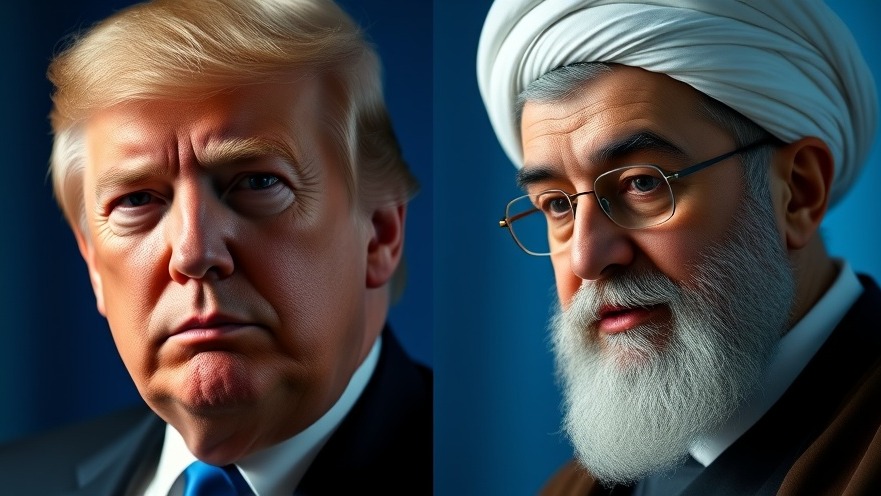
Understanding the Risks: U.S. Response to Iranian Threats
In recent discussions surrounding Iran's provocative stance against U.S. interests, the statement by former President Trump reinforces the delicate geopolitical landscape that America navigates today. His assertion that any harm toward U.S. citizens could result in significant repercussions reflects a broader strategy of deterrence that the United States employs in the face of hostility from nations like Iran.
In 'Bruce: Trump ‘Has Made It Clear' To Iran 'That If Americans Are Hurt, There Will Be A Repercussion,' the discussion dives into critical U.S.-Iran relations and its implications, prompting a deeper analysis of America’s approach to national security.
Geopolitical Tensions: Background on U.S.-Iran Relations
The U.S.-Iran relationship has been strained for decades, marked by mutual distrust and a series of conflicts. Trump's recent remarks come amid heightened tensions in the Middle East, where Iranian-backed groups have openly threatened retaliation against America for intervening in conflicts involving Israel. Such rhetoric raises critical questions about the future of U.S. foreign policy in the region.
The Stakes for American Citizens Abroad
As the situation develops, the safety of Americans living or traveling abroad remains a priority. The potential for armed conflict, particularly in volatile regions where American services and personnel operate, emphasizes the need for proactive measures. The government's warning about responding to missile attacks is a call-to-action for citizens to remain vigilant and aware of their surroundings.
Diplomacy versus Military Action: What's Next?
The debate over the effectiveness of diplomacy with Iran remains contentious. Some experts advocate for renewed diplomatic efforts, while others argue for a firmer military posture. The nuances of U.S. foreign relations require a delicate balance between maintaining peace through dialogue and protecting national interests through strength.
A Community in Crisis: Domestic Impact of Foreign Policies
Despite the international focus on conflicts, the repercussions of such policies often manifest at home. The tensions prompt discussions about national security and how citizens view government strategies. As American attitudes shift concerning foreign intervention, public opinion could influence future political decisions on Capitol Hill. U.S. military presence overseas often incites varying perspectives on its necessity and effectiveness.
The Role of Media in Shaping Public Perception
The news cycle plays a pivotal role in how these international developments are perceived domestically. Rapid updates from sources covering U.S. foreign relations help inform citizens about potential threats, allowing them to engage in discussions about their implications. The media’s portrayal of events not only reflects but also shapes public sentiment about the nation’s foreign policies.
Interactive Dialogue: Encouraging Community Engagement
As these discussions unfold, fostering a healthy dialogue within local and national communities is essential. Town halls, forums, and online discussions about foreign policy can empower citizens to voice their concerns and influence political discourse. Mobilizing civic engagement lends a voice to those impacted by national and foreign policies and highlights the interplay between government decisions and citizen experiences.
Conclusion: The Path Forward
The ongoing discourse surrounding America’s response to Iranian aggression is multifaceted and ever-evolving. As citizens, understanding the implications of government decisions on foreign policy can help cultivate an informed electorate. Awareness of international events allows individuals to advocate for policies that align with their values and contribute to discussions on national security. By staying informed and engaged, Americans can collectively navigate the complexities of their nation's place in the world.
 Add Element
Add Element  Add Row
Add Row 



Write A Comment